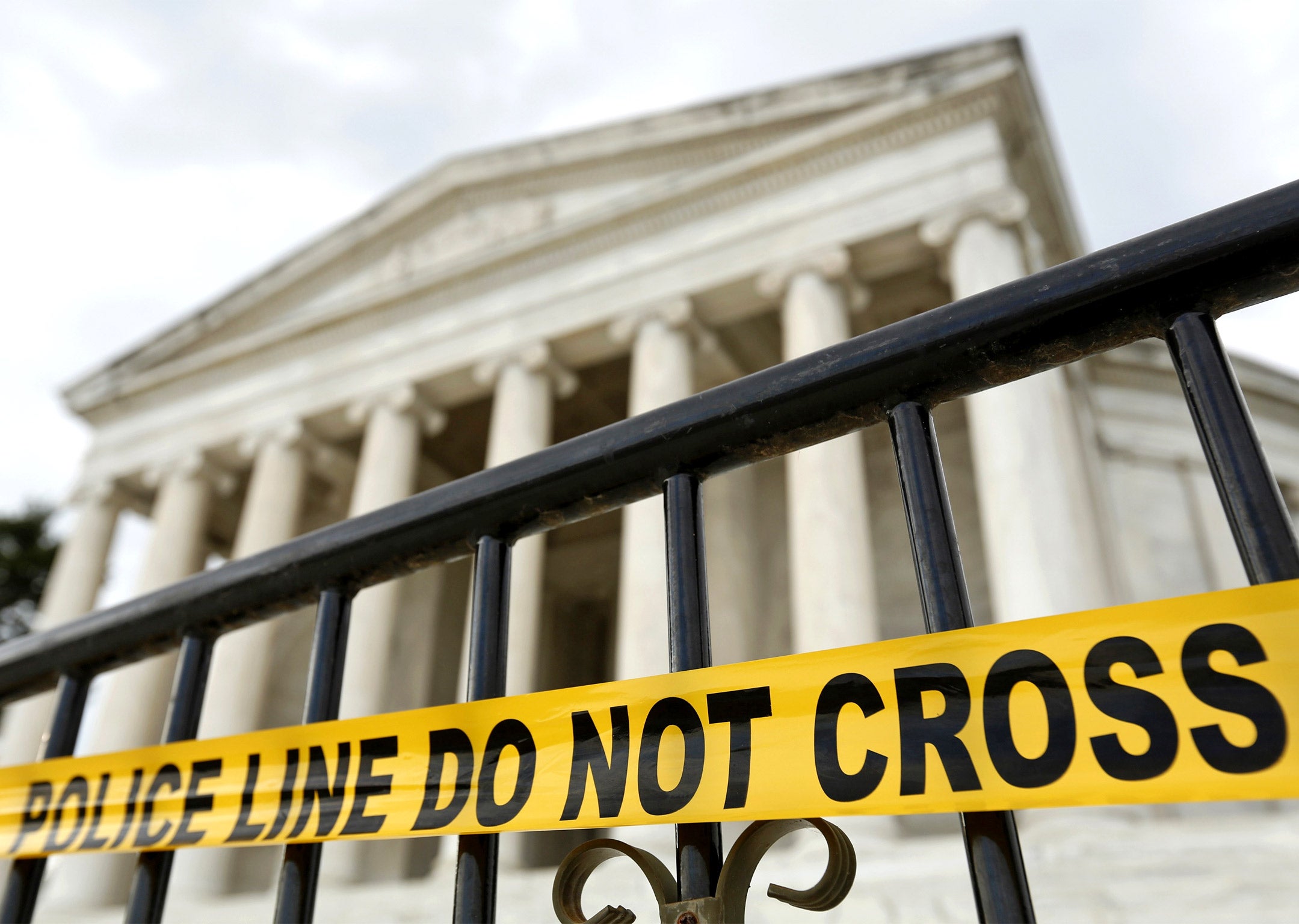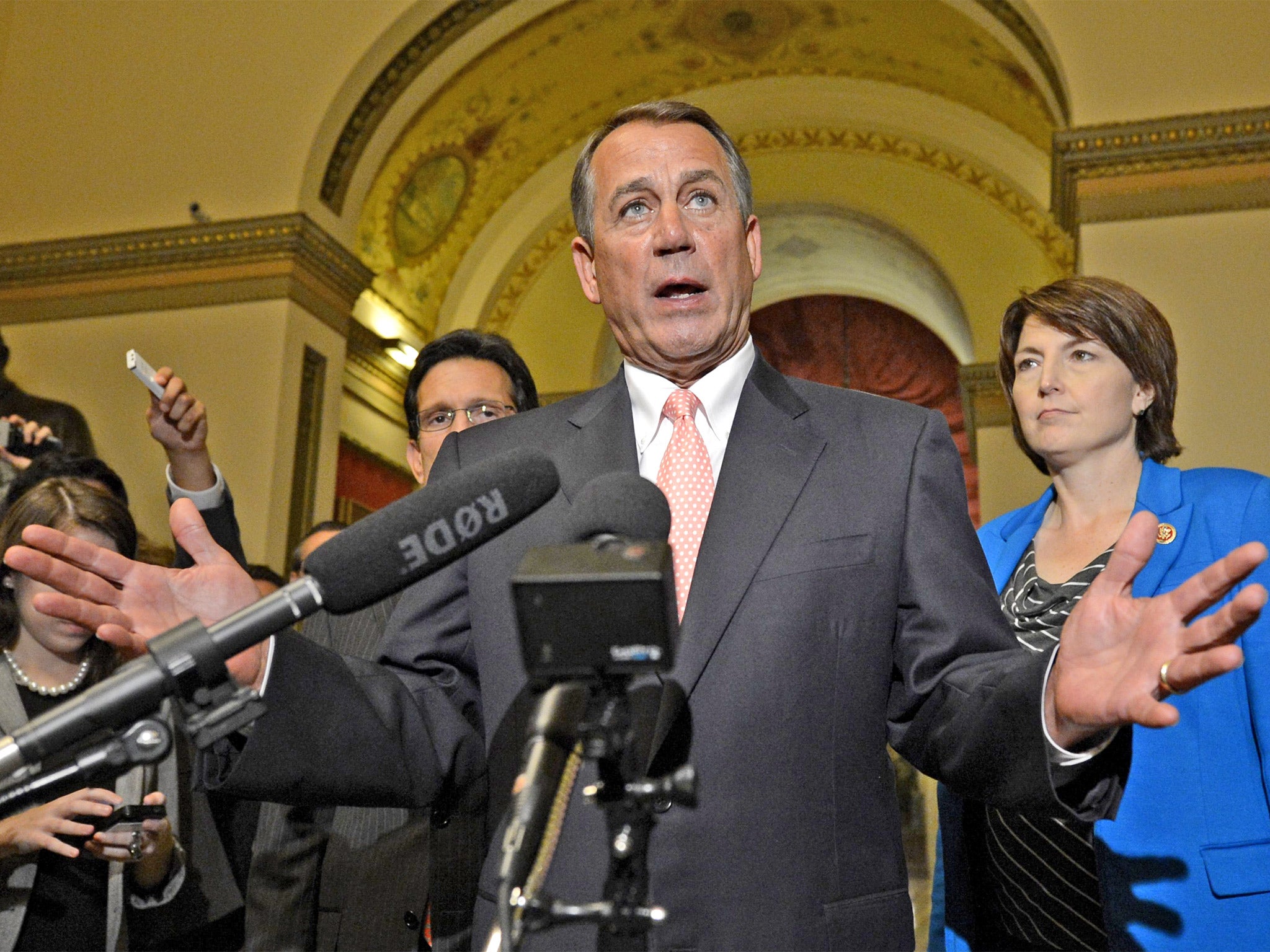US shutdown: President Obama vows not to give in to 'ideological crusade' as budget impasse forces 800,000 people off work
Republicans and Democrats have failed to agree the budget for federal agencies, forcing non-essential workers on unpaid leave

Your support helps us to tell the story
From reproductive rights to climate change to Big Tech, The Independent is on the ground when the story is developing. Whether it's investigating the financials of Elon Musk's pro-Trump PAC or producing our latest documentary, 'The A Word', which shines a light on the American women fighting for reproductive rights, we know how important it is to parse out the facts from the messaging.
At such a critical moment in US history, we need reporters on the ground. Your donation allows us to keep sending journalists to speak to both sides of the story.
The Independent is trusted by Americans across the entire political spectrum. And unlike many other quality news outlets, we choose not to lock Americans out of our reporting and analysis with paywalls. We believe quality journalism should be available to everyone, paid for by those who can afford it.
Your support makes all the difference.The US awoke to find its federal government in a partial shutdown, putting an estimated 800,000 people out of work until the squabble over spending in Congress can be resolved. Washington’s partisan gridlock triggered the shutdown early in the morning, with Republicans and Democrats failing to agree a deal to keep federal agencies funded past a midnight deadline.
With no budget, the US government has no choice but to send its non-essential workers on unpaid leave, affecting agencies as varied as the Justice Department, the National Parks Service and the Pentagon in the first shutdown for 17 years.
President Barack Obama was scathing in his assessment of the situation, blaming Republicans for an “ideological crusade” aimed at his healthcare programme and urging lawmakers to keep government operations running without conditions. “As long as I am President, I will not give in to reckless demands by some in the Republican Party to deny affordable health insurance to millions of hard-working Americans,” he said.
Across the country, from the Statue of Liberty to the Grand Canyon, national parks closed to visitors. Nasa’s mission control in Houston is still supporting US astronauts aboard the International Space Station, but the remainder of the agency’s staff were sent home. Air traffic controllers, prison guards and border patrol agents continued to work, but even their pay may dry up if the shutdown drags on.
According to the White House, a one-week shutdown would cost the US economy about $10bn (£6.2bn). Earlier Mr Obama warned it would throw “a wrench into the gears of our economy at a time when those gears have gained some traction”.
“Hundreds of thousands of these dedicated public servants who stay on the job will do so without pay,” the President said. “And several hundred thousand more will be immediately and indefinitely furloughed without pay. What, of course, will not be furloughed are the bills that they have to pay – their mortgages, their tuition payments, their car notes.”
Civilian workers in the military may be sent home, but, as it became clear the shutdown would go ahead, Mr Obama signed a law protecting active-duty servicemen from its effects.
Congress had until midnight on Monday to agree on a stopgap budget to keep the money flowing to government departments into the new fiscal year, which began today. But Republicans in the House of Representatives refused to countenance any measure that left the President’s signature healthcare reforms – known collectively as Obamacare – untouched.

But, under pressure from right-wing Republicans, the party’s leader in the House, Speaker John Boehner, refused to put forward a straightforward budget measure. Late on Monday, the House leadership suggested negotiating with the Senate, via a legislative process known as conference, instead of simply sending bills back and forth. The idea was rejected by the Democratic leader in the Senate, Harry Reid, who said: “We’re not going to go to conference with a gun to our head.”
As midnight loomed, the budget office put a memo out to federal agencies, directing them to “execute plans for an orderly shutdown due to the absence of appropriations”.
Polls show that the US public is likely to blame Republicans for the shutdown, and that voters disapprove of GOP tactics in trying to removes funds from Obamacare, which was passed four years ago and has since been ratified by the Supreme Court.
The focus now will be on the length of the shutdown, which senior Republicans reportedly expect to last at least a week. The longer the budget impasse in Washington, the greater the risk to economic growth.
In the event of a shutdown lasting more than a few days, lawmakers will also be under pressure to agree a deal that resolves not just the budget issue, but also the thorny question of the US debt ceiling. The government runs out of room on its Congressionally-mandated debt limit around 17 October.
If Congress fails to raise the limit on time, the US would face defaulting on its debts – an outcome that would be likely to throw world markets into a tailspin.
High demand for online Obamacare
The online healthcare market established under President Barack Obama’s Affordable Care Act opened for business this morning, in spite of a government shutdown brought on by the battle over the President’s signature policy, known as Obamacare.
Healthcare.gov, the federal portal through which people in most states can search for affordable health coverage, struggled to cope with the high volume of traffic, with many people experiencing delays.
The New York state healthcare exchange opened at 8am and had about two million visits in its first hour-and-a-half online.
Tim Walker
Join our commenting forum
Join thought-provoking conversations, follow other Independent readers and see their replies
Comments